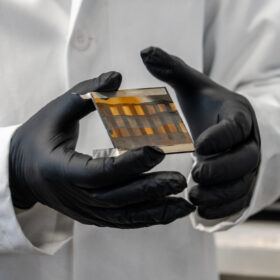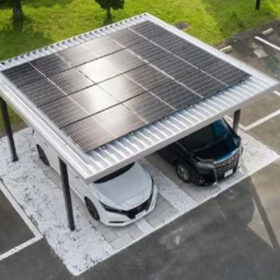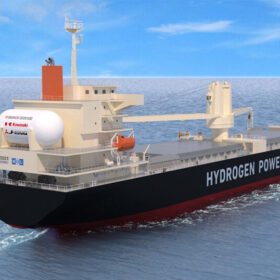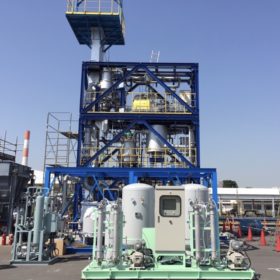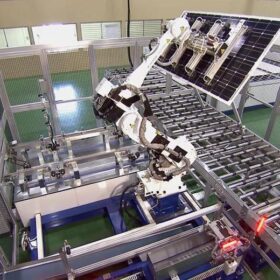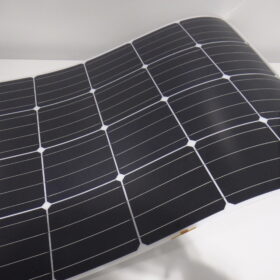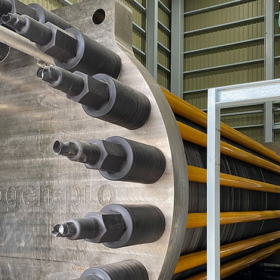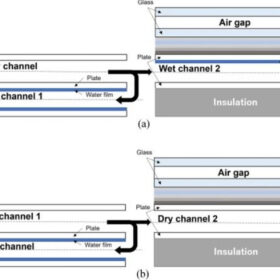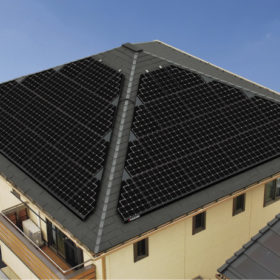Commercial perovskites imminent
Andries Wantenaar, a solar analyst at Rethink Energy, explains why he sees a bright future for perovskite PV cells, with technological advancements and major R&D investment paving the way for revolutionary change.
New solar carport from Japan
Daiwa, Japan’s largest homebuilder, has developed a new solar carport that can accommodate solar modules from any manufacturer in various colors and shapes, allowing developers to consider the aesthetic requirements of the surrounding areas and buildings.
Panasonic unveils new residential heat pumps
Japan’s Panasonic has developed a new central heat pump system for residential space heating and cooling.
The Hydrogen Stream: Japan invests in hydrogen
Nippon Kaiji Kyokai (ClassNK) has approved a hydrogen-powered multi-purpose vessel in Japan, while Toyota has decided to use fuel cell coaches for transport during the 2024 Paris Olympic Games.
The Hydrogen Stream: Japan backs hydrogen in aviation
The Japanese government has confirmed to pv magazine that it is launching a new support scheme for hydrogen in aviation, while Japanese investors continue to actively pursue participation in a green ammonia project in South Africa.
Japan’s NPC Incorporated expands PV production equipment capacity
Tokyo-based PV equipment manufacturing company NPC Incorporated will foster future capacity expansion due to equipment demand from an undisclosed North American solar manufacturer.
Japanese scientists design flexible crystalline silicon solar modules with PET front cover
The new solar panels have flexible properties and are suitable for roofs with loading restrictions. According to their creators, the modules showed high reliability under both high temperature and high humidity conditions.
Mitsubishi testing 5.5 MW pressurized alkaline electrolyzers in Japan, Norway
Mitsubishi has conducted short-term validation tests of its 5.5 MW pressurized alkaline electrolyzers in Norway and long-term validation tests in Japan. It plans to incorporate the design of these two single-stack pressurized alkaline electrolyzers into a US project.
Reducing solar module temperature via dew-point evaporative cooling
Japanese scientists have designed a cooling system that reduces the solar panel operating temperature at the air inlet of the module. It consists of a dew-point evaporative cooler that supplies the near-saturation air to wet air channels that are attached to the back of a PV panel.
Kyocera enters solar generation business
Kyocera has moved into the PV generation business by announcing plans to procure surplus solar from owners of rooftop PV systems in Japan, so it can provide it to businesses through power purchase agreements (PPAs).
